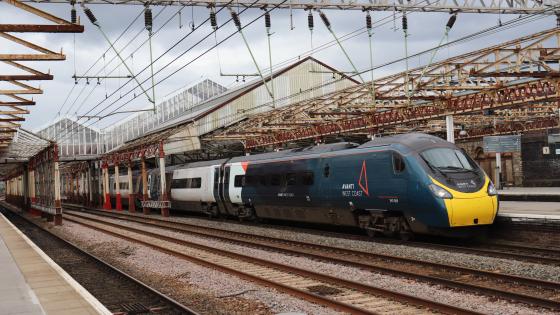
A Labour Government would bring almost all passenger operations in-house by bringing them into Great British Railways as they expire, says Shadow Transport Secretary Louise Haigh.
It would create Great British Railways in its first term, and under its plans, Labour says the move will not incur compensation costs and would save taxpayers money by ‘eliminating fragmentation, waste, bureaucracy and by stopping profits leaking out to private operators.’
The plans would give devolved leaders – including Mayoral Combined Authorities – a statutory role in the rail network, and set clear objectives for passenger services and freight growth.
A new passenger watchdog called the Passenger Standards Authority would be created to hold GBR to account for passengers, while a ‘best-price ticket guarantee’ would be introduced, along with automatic delay-repay and digital season tickets across the network.
Labour says it would also support ‘successful open access and freight operators to continue to deliver.’
At the announcement, Ms Haigh said: ‘“After years of dysfunction and waste our broken railways are unfit to meet the needs of modern Britain. Passengers and taxpayers alike are being failed, and our economy is being held back. Doing nothing is simply not an option.
‘With Labour’s bold reforms, a publicly owned railway will be single-mindedly focused on delivering for passengers and will be held to account on delivering reliable, safe, efficient, accessible, affordable and quality services.
‘Labour’s detailed plans will get our railways back on track; driving up standards for passengers, bringing down costs for taxpayers, driving growth and getting Britain moving.’
She added that Labour’s plans would ‘deliver more certainty for investors and manufacturers to plan long-term for British Rail manufacturing and “crowd in” private investment to stimulate innovation in the sector.’
Industry reaction
The Railway Industry Association welcomed Labour’s pledge to make rail reform an early priority and commit to a long-term strategy. Chief Executive Darren Caplan added: ‘It is also positive that rail is recognised as essential to economic growth, integrated transport connectivity, levelling up the nations and regions of the country, and in helping to deliver Net Zero; and that there is a need to deliver value for money for the taxpayer in rail.
‘We now look forward to hearing others’ contribution to the debate on the future of rail.’
Lobby group Rail Partners called nationalisation a ‘political rather than a practical solution which will increase costs over time.’ Chief Executive Andy Bagnall warned: ‘‘To change the railway for the better, we must correctly understand the causes of the current situation to get the right solutions. Since the pandemic, train companies have been effectively renationalised and subject to a level of micromanagement by government not even seen under British Rail. Exclusively blaming train companies for all the challenges facing the railway doesn’t stand up to scrutiny.
‘Over time, the increased costs to the taxpayer of nationalisation due to the loss of commercial focus from private train companies will lead to either reduced train services or increased subsidy. That means rail competing for funding with other public services like the NHS. Historically, British Rail often lost this battle.’
He said Labour’s proposals were ‘moving in the exact opposite direction to what we’re seeing across Europe where other governments are seeking to copy the previous successes of the British model using competition amongst train companies – both for contracts and on the tracks – to reduce subsidies for taxpayers and provide a better service for passengers.’
Mr Bagnall welcomed Labour’s recognition of the role that private sector freight and open access operators play but concluded: ‘Ejecting private train companies from the railway will create a prolonged and messy transition at a time when we need all parts of the railway to pull together to deliver for passengers and freight customers.’
